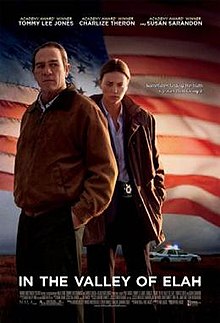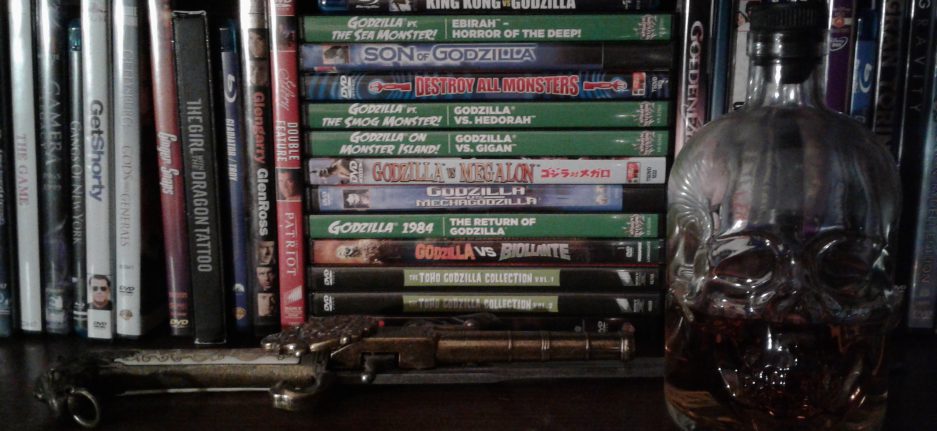Story time, kids!
Back in 2008, I was graduating after four years of university studies. It was a proud time, queuing in the Armory (my first time in there) and then walking across the stage at the famed Elliott Hall of Music to shake hands with the deans, all under the watchful eyes of my parents, my brother, and my grandmother (who would pass on less than a year later). Their pride was palpable, and some of it even permeated my usual self-deprecating interior. My future was spread out in front of me, brighter than ever. Thing is, I didn’t exactly have a concrete post-graduation plan. Sure, I had taken the LSAT (hardest standardized test I’ve ever taken, by a good country light year), but I wasn’t enthused with the law school applications that had gone through. So, with no tangible goal or plan, I set out to join the workforce for a year or so, make some money while I regroup and apply to grad schools.
Silly me, I figured having a college degree – technically with honors – would aid me in my quest for a short-term position, like retail or something thereabouts. I wasn’t delusional, I knew my work history was uneven at best: a couple summers and a winter break as a residential inspector for the township’s assessor’s office, a summer on the local school district’s ground crew (so much heat exhaustion for nothing…), and a couple years as an intramural official for softball and flag football (I’ve gotten yelled at by a lot of buzzing frat guys, lemme tell ya). But I didn’t think it would be very difficult to find some entry-level, non-skilled position somewhere. Silly me. It took three months of searching to finally land a job. At Blockbuster.
Funnily enough, if I may make a quick digression, I’d wind up landing my dream job. Seriously. See, back in the day, one of the more fun things my family and I did on a semi-regular basis was to head out, grab a rental and some food, and then spend the night watching movies and eating junk food. One night that stands out for some reason involved picking up Godzilla Vs. Monster Zero (still one of my favorite entries in that franchise) and a Sega game (I can’t remember which one, but it was something along the lines of either Ecco the Dolphin or Splatterhouse 3 (in our house, Sega did what Nintendidn’t)), shooting over to McDonald’s for a chicken nugget Happy Meal (with barbecue sauce, natch (and this was in the days before all-white-meat nugs, kids, so there was undoubtedly one in the package that contained a knot of dark meat *shudder*)), then heading home and upstairs, popping the tape in the VCR, and enjoying some quality kaiju entertainment whilst dipping my nugs and fries in sauce. Good times. Pretty much every time we went was at night (and I can distinctly remember being distracted by the cover for Critters and Critters 2, for some reason), and I often opined that working at Blockbuster at night was one of the best jobs to have, and I wished I could do that in the future. Lo and behold, my dream job was realized. It’s easy to achieve your dreams when you barely have them in the first place.
Anyway, four years – plus twelve or more prior – of education building toward so much promise and ability led to me stocking the shelves at the local Blockbuster until somewhere past midnight. While I was doing this, there would be plenty of movies I’d later recognize from the shelves, like Guy Ritchie’s Revolver (the subject of what is still my favorite interview story revolving around good customer service), the Josh Hartnett vehicle August, and some weird title called Kibakichi (I watched that movie and its sequel and I still can’t remember a damn thing about them). One such title came back into my life the other day while I was going through Zoe Kazan’s filmography (what can I say, she’s awesome), and In the Valley of Elah showed up on Cinemax. I could easily remember shelving the several copies of the film in the middle section, as it never really got any rental traction at our location, so there was always a good stack of them there. I never really bothered to look into it, but that cover, with Tommy Lee Jones standing in front of the American flag, for whatever reason stuck with me. It was finally time to give it a go.

Apparently I never noticed Charlize Theron up there. Hm. Anyway, based on a true story from journalist Mark Boal in 2004, the film follows the aforementioned TLJ, a retired MP vet, as he seeks answers to his son’s disappearance. Said son is a veteran of the Iraq War (and, if I’m remembering later conversations properly, of some actions in Bosnia, as well) who’d recently returned to the States and disappeared. He is aided by Theron, a put-upon and under-respected local cop. Things spiral into a strange investigation involving dueling jurisdictions between the police and the military, a potential cover-up, and the revelation of the son’s inner secrets. Jones is the symbolic David in the titular valley, gearing up for a tussle with quite the armed giant.
It’s a solid movie, to be sure, and while watching it I noticed a few things. First, the cast is certainly something: You’ve got Oscar-winner TLJ, who turns in a fantastic performance as a dedicated and partially-grieving parent; Oscar-winner Theron, who also brings the heat, showing her struggles within the department as well as against the hard-headed Jones and military complex; Oscar-winner Susan Sarandon, who does well as Jones’s beleaguered wife; Oscar-nominee Josh Brolin as the slightly tough and sassy police chief; Oscar-nominee James Franco, who doesn’t honestly do too much as one of the son’s fellow soldiers; Jason Patric, who hits above his weight class and succeeds as the seemingly obstructionist military liaison; Frances Fisher (you may remember her as the stuck-up mother to Rose in Titanic) shows up randomly as a topless bartender/waitress; and Emmy-nominee Zoe Kazan, who does very well in her small role as an abuse victim ignored by the police department. Not too shabby, eh?
Then I noticed that the film was written and directed by Paul Haggis. You might know him as the first (and, as far as I know, only) person to score back-to-back Best Picture Oscars for his work on Million Dollar Baby (as the writer) and the insanely over-heralded and bafflingly-nominated Crash (as both writer and director). Haggis does very good work here, grounding the film in an appropriately morose tone and telling a fairly compelling story. It’s very much a Paul Haggis film, though, as the ultimate climax feels rather off, too swiftly coming about and certainly not satisfactory for the solid build-up, and the various antagonists of all sizes don’t reflect systems of issues or anything, they’re just oddball assholes. This is what made Crash the dumpster fire it was, and it hangs like a pall over an otherwise outstanding film.
Funnily enough, as a joke, I took to IMDb while watching the film. I noticed the cinematography was absolutely killer: Standout shots include the shot/reverse-shot bits in the doorway at night between Theron and her young son, showing some excellent tenebrism and balance, and a fantastic shot of Sarandon on the phone with Jones: we see her slump to the floor near the base of a staircase, in clear emotional agony, and when she throws the phone away from her, we see some contextual clues keying us into what happened earlier in the conversation, namely an overturned table and some candies (Werther’s Originals, ’cause why not be as stereotypical as possible when depicting older folks) strewn about the floor, indicating that she had tossed said table over shortly before we joined her. We see her from above, the camera seemingly leaning over the banister to get the shot. It’s just an incredibly well-shot film all-around, so I went to see who the DP was. Turns out, it’s only Roger Deakins, who finally won an Oscar for lensing Blade Runner 2049 after twelve (!) previous nominations (including Fargo, The Shawshank Redemption, Skyfall, and No Country for Old Men, which he filmed just before this film in very close proximity to the Coens’ locations) and is generally considered one of (if not the) greatest living cinematographer. Hell, even production designer Laurence Bennett has an Oscar nod on his resume for The Artist, and the film itself garnered a nomination for Jones’s lead acting (he would lose to Daniel Day-Lewis for There Will Be Blood, so it’s hard to be too mad there).
So, despite so much talent with so much personal hardware and despite so much good about it, why is it that I’d never really heard of the film before shelving it at Blockbuster and finally watching it the other day? Why did this film have so much promise, only to falter both at the box office (it made a modest profit at the box office, but still didn’t garner more than $30M) and in the public consciousness? How did this goliath fall? I believe that it’s mostly to do with Haggis’s shortcomings, particularly in the script’s tone and lackluster finale. The film hovers just over dirge levels of sobriety and seems to be trying to say something about the nature of warfare and what it does to people and how we as a society don’t wanna know any of that, but nothing of any real substance makes its way through to us. The characters are all symbolically posturing in such a way as to say something of import, not unlike a stage production of Les Misérables, but nothing close to “Do You Hear the People Sing?” comes out. It leaves the film feeling almost unfinished, certainly dissatisfying, and, for some, possibly wrecked.
That said, I think the film deserves much more credit and acclaim than it’s gotten over the past decade or so. I admit it doesn’t end quite as well as one would expect from the first two acts, but it’s still a powerful-enough film filled with sterling performances and showcasing some remarkable talent behind the camera. It’s more than worth a go for anyone who finds the core concept intriguing, and it’s a fine example of strong cinematic storytelling. Maybe my story above echoes too closely to the film’s, but brighter days came to me in the coming years; I can only hope they do the same for this film. After all, in spite of the odds, the young shepherd upended the massive Philistine, so you never know what to expect.
